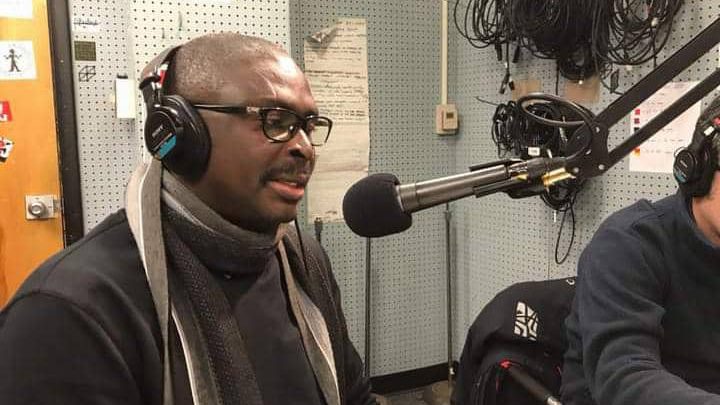By: Yakubu Ahmed
Media organisations were advised to always ensure that legal practitioners offer them advice on investigative pieces before publishing them.
Slap them back
- Journalists and human rights activists in Nigeria on Tuesday decried the ongoing efforts to stifle the media and critical civil society organisations through slam lawsuits.
They also suggested fixes for the legal actions and other plots aimed at frustrating and intimidating journalists and activists.
The ICIR hosted a Twitter Space with the theme “SLAPPThemBack: Examining Frivolous Lawsuit Targeted at Dissenting Voices,” during which media stakeholders participated.
Strategic Lawsuits Against Public Participation (SLAPP) are “basically frivolous lawsuits that are filed by the people we (journalists and activists) hold to account,” according to Dayo Aiyetan, Executive Director of the International Centre for Investigative Reporting (The ICIR), who spoke at the event.
Mr. Aiyetan noted that the issue is a worldwide phenomenon and argued that efforts are being made to weaken civic space in a number of nations, including Russia, China, Turkey, Iran, the United States, and the United Kingdom.
He did note, however, that Nigeria was not an exception, adding that the Muhammadu Buhari administration did everything in its power to silence critical voices through draconian legislation such as the Cybercrime Act.
Continuing, he said, “And then in African countries, in Nigeria, sometimes hypersensitive governments and regimes attempt to silence dissenting voices.
“In Nigeria, from the days of the military, even under democratic dispensation since 1999, journalists, advocates, activists and other critical voices have had to contend with arrests, illegal detention and all kinds of repression.
“You can fit anything you want into that legislation and use it in silencing your opposition or any kind of dissenting voices. These legal threats include cybercrimes law, fake news laws, espionage laws, and defamation and insults laws.
“Journalists in some countries have been slammed with legal suits for saying something that the regime or the government finds insulting but they also include what we called frivolous lawsuits.”
Slam Suit Case
In a recent survey, the ICIR discovered that approximately 40 of the 141 respondents (28.4%) from media organisations, journalists, and civic advocates had been sued in the previous year.
The research also showed that some of the 40 organisations that have been sued in the last year have faced more than three lawsuits, while others have been sued more than 12 times.
Out of the 141 organisations surveyed, 37 or 26.2 percent were civil society organisations, followed by 31 or 22.2% of online news media and 20 or 14.2 percent of newspapers and magazines.
38 percent or 48 of these organisations are small businesses with between one and 10 employees each with many of them insisting that the legal threats have significantly affected their operations.
How to avoid slapp lawsuit
Busola Ajibola, Deputy Director, Journalism Programme, Centre for Journalism Innovation and Development (CJID), gave advice on how to combat the threat, emphasising the importance of collaboration and cross-checking investigative reports to ensure journalists are not trapped.
As a journalist, Mr. Ajibola said that collaboration can significantly protect journalists and media organisations from frivolous lawsuits, saying that cross publication of stories by many newsrooms would stem abuses and libel cases.
“When perhaps we are doing a story that we know will expose us to abuse or libel cases, then we had better come together and do some forms of cross publications.
“The second one on my list is that; I think we need to work together with CSOs to put forward a legislative proposal that is aimed at stamping out SLAPP and in doing that we need to have a clear timeline,” said Mr. Ajibola.
On his part, Fisayo Soyombo, Founder of the Foundation for Investigative Journalism (FIJ), stated that he has discussed with his team how investigative journalism can result in frivolous lawsuits. However, he maintained that no lawsuit will deter him or his team.
He advised media outlets to make an extra effort in building relationships with legal practitioners who believe in their work while speaking on how to obtain funds to deal with the lawsuits.
“You can imagine that in one of the lawsuits we had the airline listed one of its witnesses as an aeronautical engineer and then there was someone with a background in forensics. To counter them, we probably need people like that too.
Even if your lawyer wants to take on the case for free, those people may not be free and then you need money,” he said.
Revisiting the Cybercrime Act
Inibehe Effiong, a human rights lawyer and principal partner at Inebehe Effiong Chamber, called for a review of the Cybercrime Act, specifically Section 24.
Mr. Effiong, who spoke on the pernicious nature of cases brought against journalists, stated that efforts to repeal the controversial section of the law were thwarted by the decision of Justice Mohammed Idris of the Federal High Court, which was upheld by the Appeal Court.
“We are hoping that the Supreme Court will take a different position. Other than that the only way will be to have Parliament to review it if they have the political will. The law needs to be reviewed because in Section 24, everything publishable, everything reportable might be interpreted as cybercrime for which journalists and media houses can be targeted.”
“In terms of criminal defamation, I think other states can take example from Lagos. In Lagos the Criminal Code Law no longer recognises criminal defamation as an offence. In most other states, defamation is still a crime in their various codes,” Mr. Effiong said.
He, therefore, advised media houses to always ensure that legal practitioners offer them advice on investigative pieces before publishing them.
Website: www.guardpost.ng




